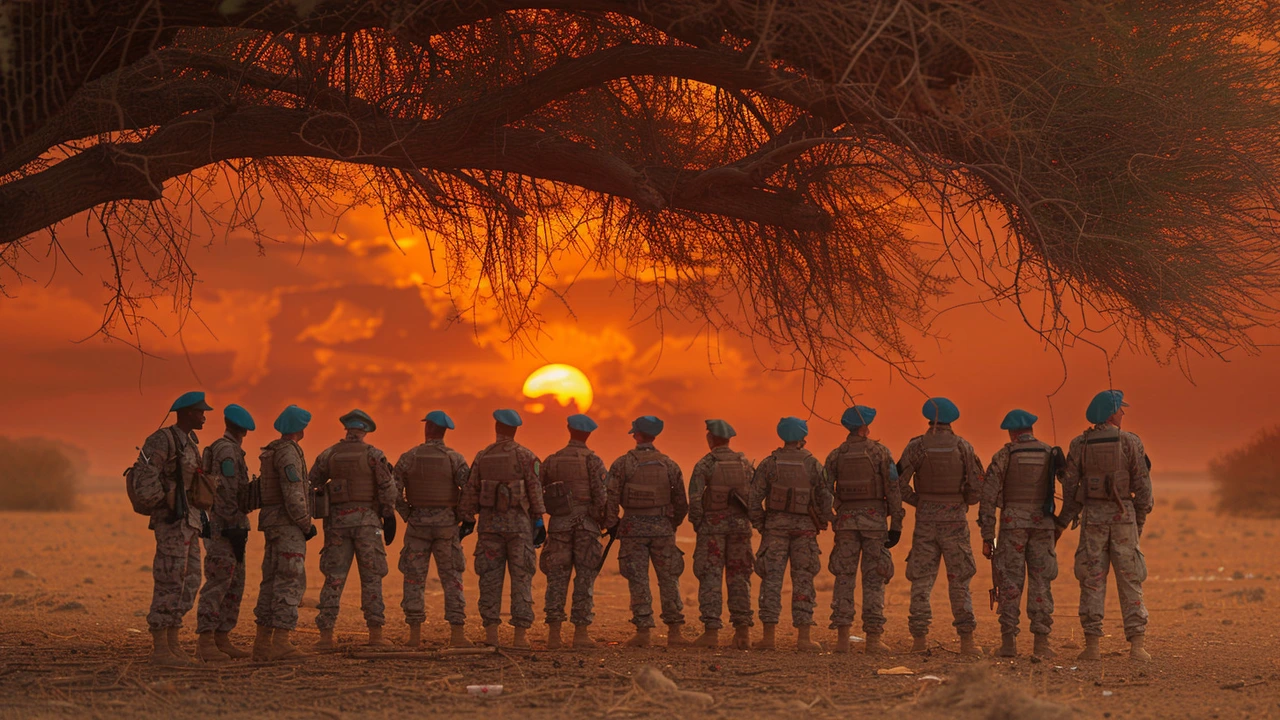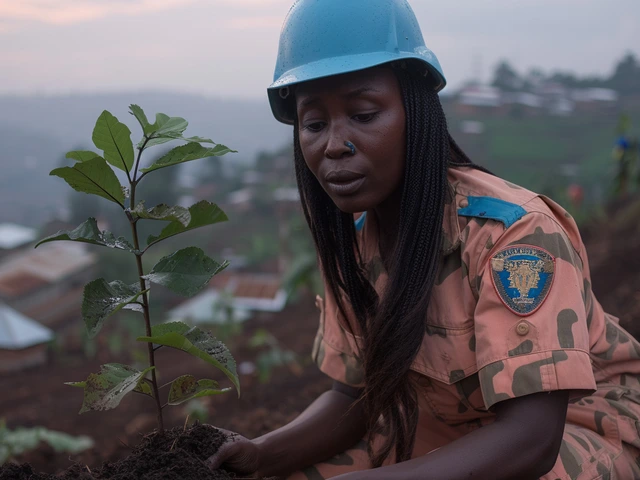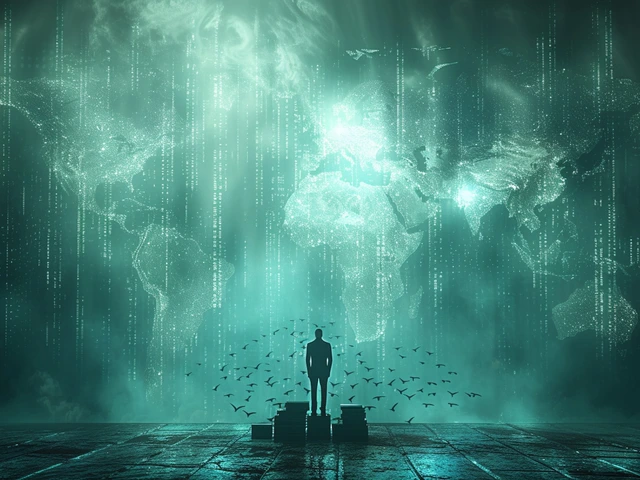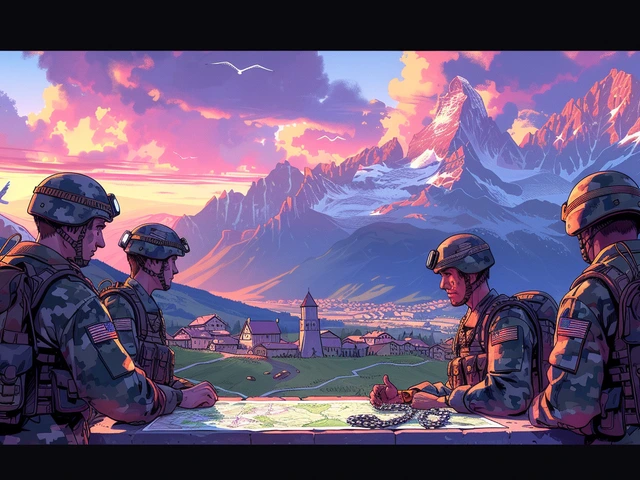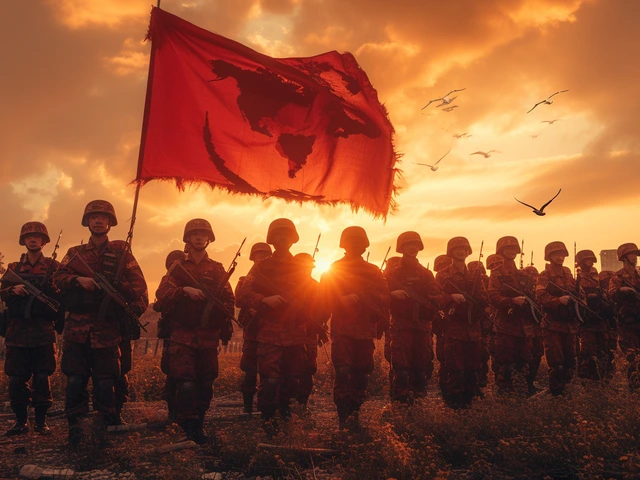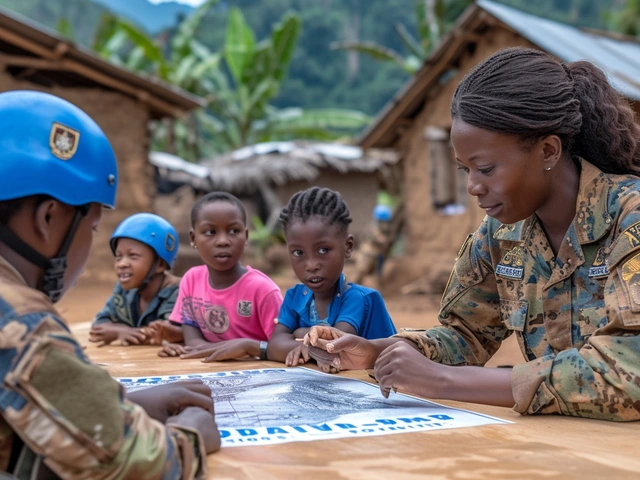Introduction to Global Peacekeeping
The word 'peacekeeping' might conjure images of UN blue helmets patrolling conflict-torn regions, but the truth behind this noble endeavor is far more complex and expansive. Peacekeeping has evolved into a multifaceted mission, enlisting not just military personnel but also civilians and police forces to maintain peace and security. These efforts span across continents, addressing conflicts that range from territorial disputes to sectarian violence, with the ultimate goal of protecting civilians and securing a future where dialogue trumps violence.
The Evolution of Peacekeeping Missions
From its inception in 1948, when the United Nations Truce Supervision Organization (UNTSO) was established to observe and maintain the ceasefire during the Arab-Israeli War, peacekeeping has undergone significant changes. Missions have shifted from primarily monitoring ceasefires to engaging in complex operations that include conflict prevention, peacemaking, and state-building efforts. This evolution reflects the international community's understanding that peace is not merely the absence of war but also the presence of justice and equitable development.
Roles and Responsibilities of Peacekeepers
Peacekeepers wear many hats. They monitor ceasefires, protect civilians, assist in mine removal, and support the delivery of humanitarian aid. Their presence offers hope and a semblance of normalcy in regions where violence is a daily threat. Yet, their roles extend beyond the immediate tasks at hand, involving long-term strategies aimed at building sustainable peace. These strategies may encompass training local police forces, supporting electoral processes, and facilitating dialogues between conflicting parties.
Challenges Faced by Peacekeepers
Peacekeeping is fraught with challenges. Peacekeepers often operate under harsh conditions, within complex cultural contexts, and under the constant threat of violence. They are tasked with remaining impartial, yet active, in environments where the line between friend and foe is notably blurred. Furthermore, the success of peacekeeping missions is heavily dependent on the cooperation of host nations and the availability of adequate resources and political will from the international community.
Spotlight on Successful Peacekeeping Operations
Despite these challenges, there have been numerous success stories. One exemplary case is the United Nations Mission in Liberia (UNMIL), which played a crucial role in restoring peace and security in a country ravaged by two civil wars. Through comprehensive disarmament, demobilization, and reintegration programs, along with support for democratic elections, UNMIL significantly contributed to Liberia's path towards recovery and stability.
Technological Advances in Peacekeeping
In today's digital age, technology plays a vital role in enhancing the effectiveness of peacekeeping operations. Unmanned aerial vehicles (UAVs), for instance, are used for surveillance, offering real-time data that can prevent conflicts. The integration of technology has not only improved situational awareness but also the safety and security of peacekeepers on the ground.
The Role of International Cooperation and Partnerships
International cooperation is the cornerstone of successful peacekeeping. The partnership between the United Nations, regional organizations, and member states ensures that peacekeeping missions have the necessary political, financial, and logistical support. It is this collaborative approach that has made missions like the African Union-United Nations Hybrid Operation in Darfur (UNAMID) possible, showcasing the power of unity in the pursuit of peace.
The Future of Peacekeeping
As we look towards the future, the landscape of peacekeeping continues to evolve. Challenges such as climate change, cyber warfare, and the rise of non-state actors add new dimensions to the peacekeeping mandate. Adapting to these changes will require innovation, resilience, and an unwavering commitment to peace. The path ahead is undoubtedly difficult, but the silent, steadfast efforts of peacekeepers around the globe remind us that peace is a cause worth fighting for.

